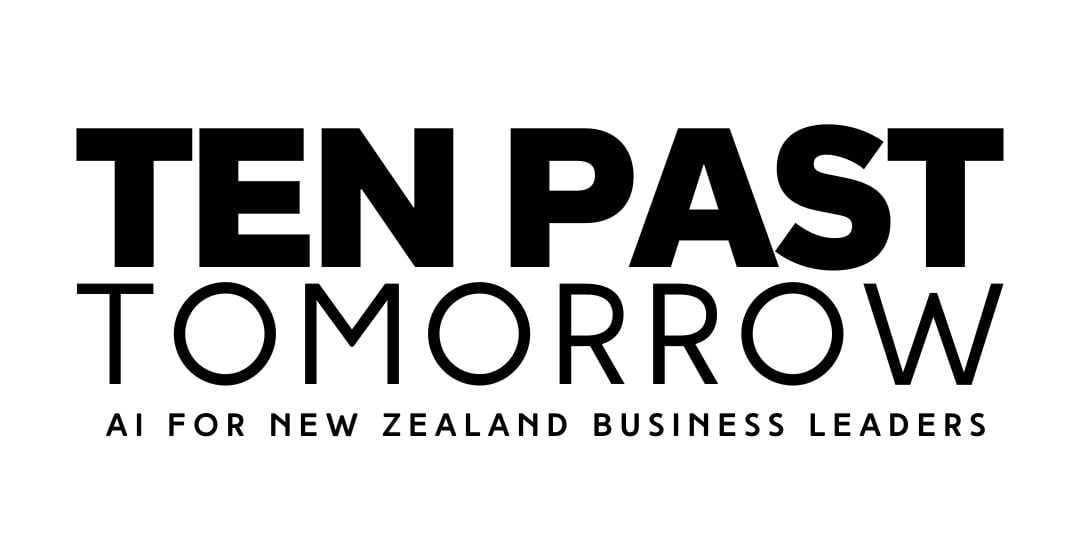Latest Wharton study shows AI has become a true business asset in 2024
Generative AI has already come a long way, in a very short time.
Having only really hit the public consciousness when ChatGPT landed in November 2022, it has captivated leaders since; with visions of streamlined workflows and productivity breakthroughs across every business function.
2023 was a strange year of massive enthusiasm about the potential of the technology, as well as lots of fence-sitting by senior leaders who were waiting to see if AI was just “another crypto, RFT or multiverse”.
It clearly isn’t.
And as a result, 2024 has been a year where lots of companies are now pushing all their chips to the middle of the table and going all-in on AI.
But I’m noticing that Gen AI has now reached a stage where enthusiasm alone won’t carry it forward.
From fascination to accountability
I sense the feeling out there that it’s time for AI to deliver on its promise, to be more than just a new tool in the box — it has to work as hard as any asset on the balance sheet, proving its value with tangible, measurable results.
We’re at a crossroads with Gen AI.
Curiosity is giving way to expectation; the technology that quickly amazed us now faces the pressure to perform.
It’s no longer about simply adopting; companies who are getting serious about their AI evolution are aligning it strategically within the business, addressing the inevitable cultural challenges, and managing it like any serious investment.
This shift is especially pressing for SMEs in New Zealand, where the stakes are high, and budgets are tight as a result of continued economic pressures.
This maturation of Gen AI is pretty much exactly the theme of the latest report from the Wharton School in collaboration with GBK Collective, “Growing Up: Navigating Gen AI’s Early Years.”
Based on a survey of over 800 senior business leaders, the report is a really comprehensive view of where Gen AI currently stands in enterprise adoption.
I like it because it explores AI’s most impactful business applications, adoption challenges, and evolving priorities.
That’s what business leaders need at the moment - really practical and relevant trends and insights about exactly how AI is reshaping organisations.
I also appreciate that it shows how leaders are moving beyond their initial excitement to focus on deeper and more meaningful returns.
So I thought my best approach to summarise my favourite insights from the report would be to create my own “Top 10 trends” list...
In doing so, I examine the most important practical, ethical, and organisational implications of Gen AI for you all, as they relate to AI entering its “second act”... weaving itself into the strategic and cultural threads of companies, all while starting to prove its own value and ROI.
1. Gen AI usage has doubled: Are you keeping pace?
- Insight: Gen AI is no longer a fringe experiment; 72% of decision-makers now use it weekly, nearly double the 37% in 2023. This growth shows Gen AI’s integration into operations, as leaders shift from curiosity to commitment.
- Why it matters: Competitors may already be gaining operational efficiencies that set them apart.
- Takeaway: Review your tech stack for areas where AI could streamline tasks and enhance insights.
2. New roles like chief AI officer signal high stakes
- Insight: More companies are appointing Chief AI Officers (CAIOs) and expanding AI teams, showing that AI needs focused leadership. AI is evolving from a side project to a strategic initiative that requires dedicated oversight. Note: I am mainly seeing titles like CAIO happening overseas. They are still very rare in NZ.
- Why it matters: Without strategic AI leadership, businesses risk underutilising AI or missing compliance needs.
- Takeaway: Assess if your leadership team has the expertise to scale AI responsibly; if not, consider appointing an AI leader. This may be internal, or an external guide, or a mixture of both.
3. AI is transforming functions across the board — not just in IT
- Insight: AI is now being used most commonly in Marketing, Sales, HR, and Operations. This spread says to me that AI is starting to become essential across functions.
- Why it matters: AI’s versatility and malleability signals that it can enhance value across departments, not just in tech roles.
- Takeaway: Encourage cross-department collaboration to pinpoint high-impact AI applications.
4. Demand for ROI is driving practical, accountable AI use
- Insight: As AI moves to full implementation, leaders are now (quite rightly) demanding proof of ROI, focusing on measurable applications and workflows. I love this - I see the trend of companies expecting AI to add real value as a turning point for the technology.
- Why it matters: The era of “just experimenting” is ending; leaders are now accountable for proving AI’s worth. (I’m not saying POCs and experimentation is ending. Just that there’s a noticeable trend of companies starting to surge ahead with meaningful deployment and transformation).
- Takeaway: Focus AI initiatives on areas with measurable outcomes to show value to stakeholders.
 Wow AI, you've really grown up this year.
Wow AI, you've really grown up this year.
5. Market leaders are shifting — keep an eye on new entrants
- Insight: While OpenAI, Microsoft and Google are established providers, new players are entering with niche tools for specific needs. This evolving landscape means decision-makers should consider smaller, specialised vendors too.
- Why it matters: Sticking solely to large providers may limit innovation and flexibility.
- Takeaway: Regularly review the AI market to identify providers best suited to your needs.
6. Business culture is key to scaling AI successfully
- Insight: AI implementation requires cultural adaptability. Companies that support collaboration and learning are more successful, while those expecting easy integration often face resistance and poor results.
- Why it matters: AI adoption reshapes workflows, and employees need support to adapt.
- Takeaway: Invest in AI education and training, and foster a mindset that sees AI as an enhancement not a threat.
7. Privacy and ethical concerns remain a top priority
- Insight: While AI enthusiasm continues to grow, privacy and ethics remain as real concerns, especially for teams/departments/companies handling sensitive data.
- Why it matters: Mis-steps in non-ethical use of AI can harm customer trust and risk regulatory issues.
- Takeaway: Establish a robust AI governance framework to address data privacy and ethics early on.
8. ROI needs the right use cases. Don’t follow the hype
- Insight: I see companies struggle with ROI when AI use cases aren’t aligned with strategic goals. Leaders who “get it” are focusing on scalable applications to transform manual and repetitive processes, rather than chasing “trendy” applications with less payoff (I’m looking at you customer-facing chatbots).
- Why it matters: Misaligned AI efforts can drain resources and reduce stakeholder confidence.
- Takeaway: Start by identifying high-impact areas where AI can solve specific business challenges.
9. Regulatory oversight is on the horizon. Be prepared
- Insight: With regulatory focus on AI increasing, companies need compliant practices, particularly around data privacy and transparency. Failing to prepare could lead to future penalties or costly catch-up. Note that I don’t see any meaningful regulatory change coming in NZ soon. But as always, we need to be watchful of what’s happening overseas as a suggestion of what’s coming our way.
- Why it matters: Compliance will be essential as AI use becomes ubiquitous across functions.
- Takeaway: Build compliance into AI strategies from the start, including guidelines for data use and ethics.
10. The AI momentum is now. Don’t miss out
- Insight: as I write this at the end of 2024, AI adoption is a now a real priority. It’s moving from “experimental” to “essential” as businesses align it with their overall strategy. I think leaders who hesitate now do risk missing out, and may find it hard to catch up to their first-moving competitors in the coming.
- Why it matters: One of the really strong themes I took from this Wharton report is that AI is now foundational to business success, driving real innovation and return across industries.
- Takeaway: Commit to an AI strategy now by identifying high-value applications, deploying high-quality education and training to your people, and building a responsible and ethical AI roadmap.
Embracing adaptability as a mandate
I’m excited. I think this Wharton report shows that we’re in a defining moment for Gen AI.
The report suggests to me that the coming years will demand not just innovation from senior leaders, but a willingness to stay flexible and adapt, both to AI’s evolving capabilities and to the unexpected challenges that will arise.
Those that approach Gen AI with a strategic, grounded mindset — focusing on accountable applications that meet specific business needs — will be better positioned to not just survive but to lead in their industries.
The way I see it… adaptability isn’t an option; it’s a mandate.
The companies that treat Gen AI as a foundation for continuous growth and real value will be those that thrive, setting the standard for others.
The question isn’t whether AI can transform business; it can. I’m watching it happen with my own clients in New Zealand, and around the globe.
The question is whether businesses and their leaders are ready to evolve in step with the technology, embracing its strengths while also managing its challenges with equal commitment.
Gen AI is “growing up,” and those who are willing to make responsible, flexible investments will be the ones who grow with it and benefit from it.






